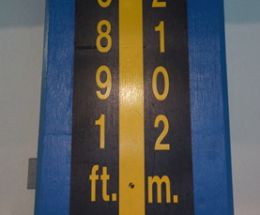
![]() SNZ Events
SNZ Events
![]() Epic Swim
Epic Swim
![]() High Performance
High Performance
 Swimming New Zealand has sent a team to Flagstaff, Arizona for some altitude training leading in to the New Zealand Open Championships. Eleven swimmers are working with coach David Lyles, sports scientist Tom Vandenbogaerde and myself who was fortunate enough to be awarded a PM Scholarship to learn more about the effects of altitude training.
Swimming New Zealand has sent a team to Flagstaff, Arizona for some altitude training leading in to the New Zealand Open Championships. Eleven swimmers are working with coach David Lyles, sports scientist Tom Vandenbogaerde and myself who was fortunate enough to be awarded a PM Scholarship to learn more about the effects of altitude training.
After leaving Wellington, Auckland and Nashville the team arrived into Phoenix on the 15th February before taking a 2 hour bus trip to Flagstaff. Dane had organised a fantastic meal for us that evening before we settled in to our accommodation.
The pool at Northern Arizona University enables the group to train both long course and short course and is 2102 m above sea level. Each day the swimmers have continued to improve in the water which has been great to see. Tom and I decided that it would be a good opportunity to experience the challenges of swimming at altitude by joining in with the Masters swimming group. The first thing that I felt was a heavy weight in my legs and we were both shocked to see how slow our times were. Breath holding went out the window as the session progressed and we chose to do more backstroke than in a normal swim so that we could get as much oxygen in to our lungs as possible. After that experience I have been more lenient with the swimmers not breathing in to and out of their turns while they adapt to this environment!
The two biggest challenges that I have experienced this week are learning how to breathe and how to sleep. Tom told us before we left that due to the decrease in partial pressure at altitude our respiration, heart rate and urination would increase. Most of the team has been fine walking to and from the pool but we have observed some heavier breathing and blue lips during the earlier training sessions this week. Some research has suggested that the resting heart rate is increased while the maximum heart rate is decreased (Reeves et al., 1987) but we have seen some good values in the tougher sets within the pool.
Travel and arrival times into Flagstaff meant that there should have been little effects of jetlag although some of the group have struggled with good quality sleep for appropriate times during the first few days. The swimmers have noted that they encounter this each time they train at altitude but the daily monitoring has shown that the team are now sleeping well and getting ready for some more great training.
Bring on week 2!
Jodi Cossor
Swimming Biomechanist - HPSNZ